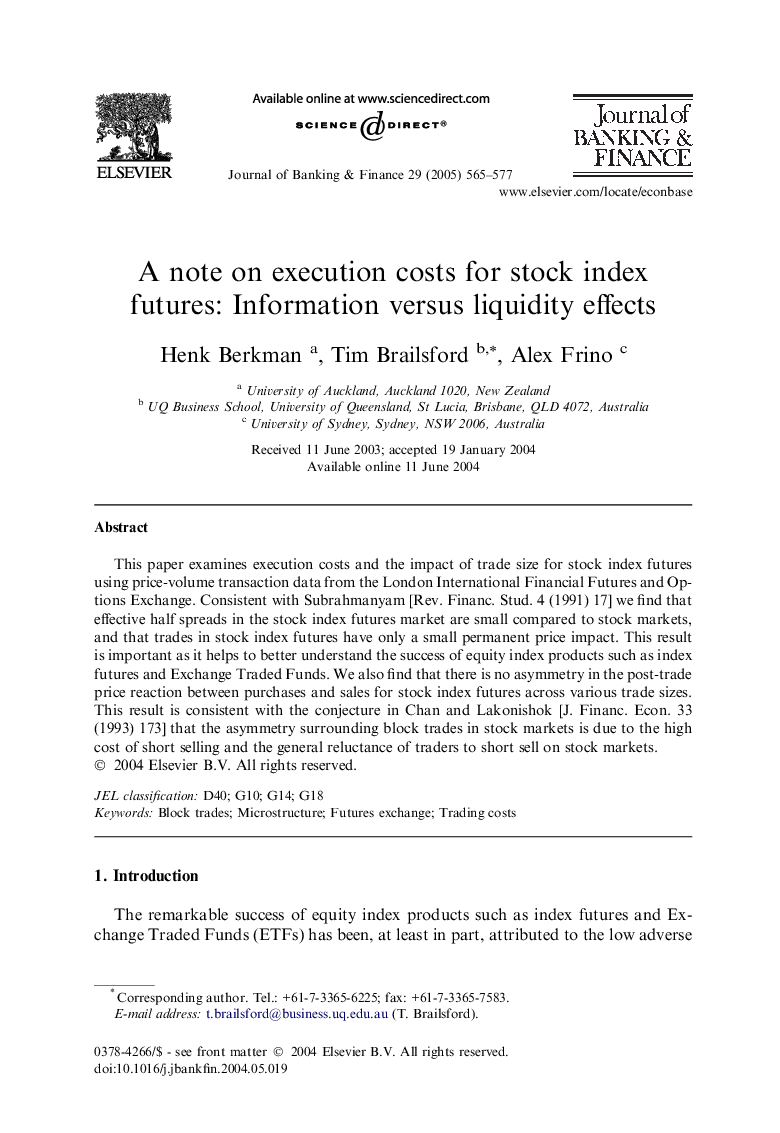| Article ID | Journal | Published Year | Pages | File Type |
|---|---|---|---|---|
| 9553910 | Journal of Banking & Finance | 2005 | 13 Pages |
Abstract
This paper examines execution costs and the impact of trade size for stock index futures using price-volume transaction data from the London International Financial Futures and Options Exchange. Consistent with Subrahmanyam [Rev. Financ. Stud. 4 (1991) 17] we find that effective half spreads in the stock index futures market are small compared to stock markets, and that trades in stock index futures have only a small permanent price impact. This result is important as it helps to better understand the success of equity index products such as index futures and Exchange Traded Funds. We also find that there is no asymmetry in the post-trade price reaction between purchases and sales for stock index futures across various trade sizes. This result is consistent with the conjecture in Chan and Lakonishok [J. Financ. Econ. 33 (1993) 173] that the asymmetry surrounding block trades in stock markets is due to the high cost of short selling and the general reluctance of traders to short sell on stock markets.
Related Topics
Social Sciences and Humanities
Economics, Econometrics and Finance
Economics and Econometrics
Authors
Henk Berkman, Tim Brailsford, Alex Frino,
